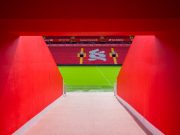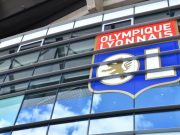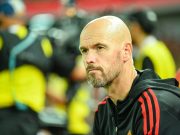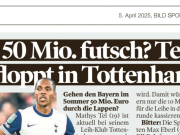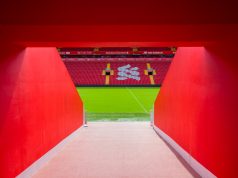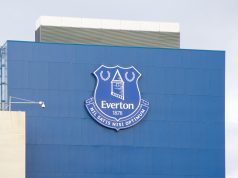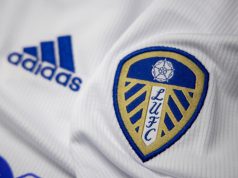Manchester United manager Ruben Amorim has insisted he is not looking at the table at this moment in time, as the focus remains on getting the squad up to the required standard.
The Manchester United boss has been speaking to journalist Fred Caldeira about the situation at Old Trafford and his future plans.
Manchester United currently sit 12th in the table with 29 points from 23 games, an unprecedented low position for the club who had expected to be in a very different situation when the season started.
It is likely to be one of their lowest finishes in Premier history, unless Ruben Amorim and his squad can go on a strong run in the remainder of the season to try and get into the top seven, which is currently 11 points away. For context, they are 13 points from the relegation zone.
Amorim, though, insists the table is of little concern to him as he’s focused on getting the squad playing how he wants them to.
“Because it’s the start of work and the details may be more important,” he answered when asked about their current league position.
“No, it’s not completely worth looking at the table, because we already know that everything that doesn’t end up in the first place doesn’t mean anything to a club like Manchester United.
“But at this point, we also have to have a sense of the context. So, I don’t look at the table, I look at what the team is doing, the things we have to improve.
“And if we look at the table and try to win two games at a time, to go up the table a lot, I don’t think it’s going to work. So, at this point, it’s just thinking about the next game.”
Amorim has slowly been transitioning the squad from the system they played under Erik ten Hag to the 3-4-3 formation that made him a success at Sporting Club de Portugal.
That has not been an easy job to date, with the current Manchester United squad seemingly struggling with the change up to now.
Part of that has been because the current composition of the side is not suited for how they want to play, but Amorim also argues that they need more time to learn the ‘routine’ of it all.
“I think that we… I was watching Fulham’s game for the second time. The positions are there, but there are a lot of routines missing,” he explained.
“There’s no time to train the routines. They’re trying to do it, but without the routines, there’s no aggressiveness in the moves. With the ball, especially with the ball. Without the ball it’s easier. There are a lot of rules without the ball. It’s easier to explain.
“With the ball, it has a lot to do with understanding the space, what the opponent is doing. We want to do something, but then the opponent covers certain spaces and we, with the routines, we can see that the game is not like that anymore. It’s another way.
“Without training, it’s impossible. I would say that they’re trying to do the positions we want, the idea we want, to try to have more ball. But obviously, a lot is missing. And that’s felt in the lack of opportunities. The lack of routines is very noticeable.
“If one does the wrong move, it compromises the rest. It’s a bit like that. They have to read each other. If the ball is on one side, the one on the back of the colleague has to realise what kind of move he’s going to make according to the colleague in front. All of this takes a lot of routine. When there’s that routine, the games are much easier. There are answers for everything.”
The lack of clear progression so far has led some to question whether the decision to appoint Amorim as Ten Hag’s successor at the end of October was the right one to make.
The expectation had been that the Portuguese coach would transform things at Old Trafford but it’s instead been a slow improvement rather than the rapid one many had hoped, even expected from him.
Part of that comes via the expectation from Manchester United, who are a club accustomed to competing at the top end of the table and challenging for trophies and not mid-table obscurity. Amorim is aware of that and the weight of the shirt hanging on the players.
“Of course it’s very difficult to play at Manchester United, but that feeling of weight and real pressure, I think that in other countries it’s bigger, in the stadium, in Brazil,” he added.
“In Portugal, if this happened, they couldn’t even go out on the streets or play the next game at home because it was too difficult. Here, I don’t feel that. I consider that real pressure. Then there’s the pressure of social media, which is a different world. It’s a little difficult for them to control that, but we can control that.
“Not reading, not watching. It’s very difficult, but it’s trying to live the real life. So, I’d say that we’re happy to play at this club. Obviously, every time there’s that feeling in the stadium, anything related to this club, I always feel that emotion and pride of belonging to this club.”





